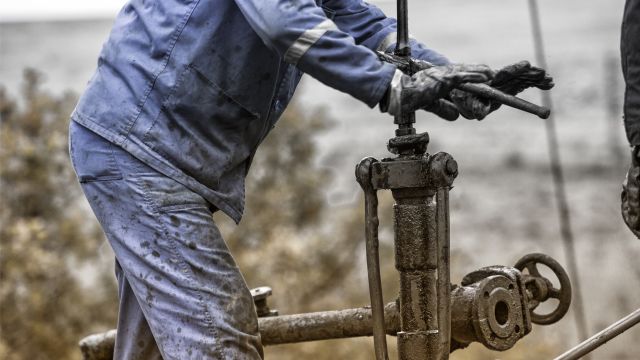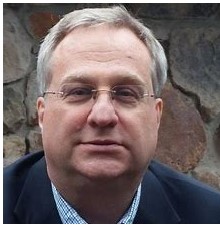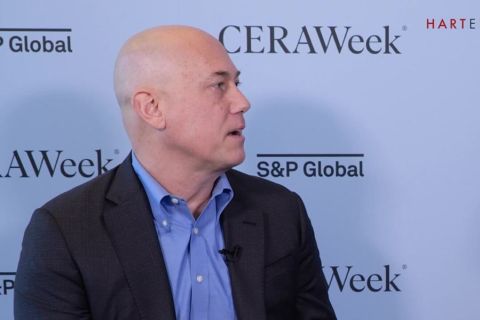
David Pistner and Dr. Byron Kohut have countless reasons to be proud of a mission accomplished. Hundreds, perhaps thousands of reasons. Thanks to their tireless work, with assists from the federal government and a determined Army colonel, legions of military veterans have found well-paying jobs in the oilfield, in this case the Marcellus Shale in Pennsylvania.
As they were becoming aware of the enormity of the Marcellus, educators developed ShaleNET to quickly help meet the needs of the natural gas industry. With plenty of input from business leaders, they built an impressive entry-level training program focused on what it deemed high-demand upstream occupations: roustabout, CDL, welder’s helper, floorhand and production technician. A website was added to answer questions about the program’s intent.
ShaleNET grew out of Westmoreland County Community College (WCCC) in Youngwood, Pa., starting in 2010 with a $4.964 million community-based job training grant. This quickly morphed into federal Department of Labor grants that require priority to returning military veterans. There have been 30 partners involved, including high schools, career and technical centers, community colleges, and a pair of universities across the country. Some remain in the program while others have moved on as the gas industry in western Pennsylvania lags because of low prices.

“Our plan was to develop a national model for workforce training in the gas and oil industry based upon the work we were doing previously with the short-term job and career readiness training for multiple industries. It would basically be a gas or shale play, and we did about seven years solid with it,” recalled Kohut, dean of the School of Technology at WCCC. The program is now being managed under a new title at Beaver County Community College, just west of Pittsburgh.
With that initial grant, WCCC was partnered with the Pennsylvania College of Technology in Williamsport, PA, where David Pistner was Kohut’s counterpart as program hub director. He subsequently transitioned to WCCC where he is vice president for workforce development and Continuing Education, handling non-credit training. As part of the program, national certificates have been provided in floorhand, roustabout, drilling and fracking.
“It evolved into more of a technical program for the colleges taking part and turned it into a two-year degree program in the fields of automation, electrical, measurement technicians, troubleshooting pipelines or well sites,” Kohut said.
DON'T MISS!

- When: Dec. 5, 2019
- Where: Marriott Marquis Houston
- Registration: https://bit.ly/2qCnqCy
- Get a preview of the program by watching this video.
A Guiding Hand
He and Pistner give a large part of the credit for ShaleNET’s success to a western Pennsylvania National Guard colonel, now retired, who was determined to help returning veterans transition to civilian life.
“The colonel just grabbed ahold of this program with both hands,” Pistner said. “He told us he was tired of signing papers to have his troops go to other states where there was employment. He wanted to keep them gainfully employed in Pennsylvania and saw careers in oil and gas as an opportunity to do that.”
Pistner said they worked with all branches, primarily the Army, and even visited the Carlisle, Pa., barracks, part of the U.S. Army Training and Doctrine Command and site of the Army War College. It is the nation's second-oldest active military base.
“They had workshops for the reduction in force, preparing veterans that were rotating out of active service and going directly to civilian life or the Reserves. I participated in discussions and career fairs to explain the oil and gas industry to veterans and help them translate or bridge from military to civilian or semi-military within the industry,” Pistner said.
 RELATED: Welcoming Our Veterans Home
RELATED: Welcoming Our Veterans Home
Matching Transferrable Skills
“One of our primary instructors at Penn College was a Vietnam veteran,” he continued. “He had 35 to 40 years in the oilfield and was able as a veteran to talk through this industry with other veterans about careers, challenges, and benefits he experienced. He helped these newly transitioning veterans into a civilian labor force and show how the transferrable skills they received from the military translated into the oil and gas industry.”
Easing the path was knowing that oil and gas companies have always been looking for veterans.
“Transferrable skills” is a phrase that invariably is spoken when discussing military veterans and the energy industry. That’s because it’s been proven to work.
“Industry loves the discipline that military folks have and that you look out for yourself or co-workers, that you get a job done regardless of how you feel that day or what the weather is like. You report for duty. You go through all types of weather conditions: snow, rain, blazing hot. The team depends on you. That type of work ethic,” Kohut said.
“They really like the safety aspect of it, the hard work, teamwork, communication and chain of command, motivation, innovation, following directions. There’s a whole host of training men and women receive in the military that has directly transferrable skills to the oil and gas industry,” he said.
Finding the right job depends on their particular training and background, he said.
“Many of them had technical skill in electronics and we would find them work with different companies that would be able to employ their skill set. What all the companies liked about the veterans was that they’re going to show up for work on time, come prepared, do the job that they’re asked to do, understand how to travel, and so on—all of the fundamentals.”
Pistner estimates that ShaleNET has trained 10,000 people, including veterans, for work in the oilfield, mostly with drilling and fracking companies. At its peak, hundreds of students a month were finding jobs.
“One issue we had was when their military occupation did not translate to the U.S. Department of Labor occupation. There was an entire process of figuring out their background and how to translate it to the industry. That took some time.”
So, an addition was made to ShaleNET’s versatile website that he described as “groundbreaking.”
“We included a career resource guide, and as far as I know, we were the first group to translate Military Occupational Standards (MOS), the military’s version of jobs that are assigned a number. For Army, Navy, Marines, Air Force and Coast Guard we had their career or skill titles or numbers translated to careers within the oil and gas industry that companies could feed into,” Pistner said.
Bridging the Gap
The program eventually became an effective conduit for companies and veterans to reach out to one another.
“We had dedicated career coaches to introduce companies to our programs as well as set up individual job interviews, group interviews, job fairs. Over the years they’ve developed great relationships with all the company human resource professionals. We coached the participants with their dress, helped them build resumes, ensuring their education—ours and previous—was included. We conducted mock interviews to be sure they were prepared,” Pistner said.
Through the years, ShaleNET remained flexible in order to adjust to changing business conditions. One way was to evolve from classroom to field work to technology training, Kohut said.
“It’s definitely evolved over the years. What they’re currently working on is taking that into the process control area, because once western Pennsylvania infrastructure catches up, they’ll need process control technicians everywhere. All these plants are going to need people who can operate SCADA, gas valves, you name it, storage and transportation. So, it’s a little less on the field work like drilling and fracking until they deplete the wells they’ve drilled over the years. It will come back; it will boom and bust like everywhere,” Kohut said.
Applicants’ Responsibilities
For their part, Pistner said ShaleNET applicants had to pay attention to Safety, Technical Awareness [laying the foundation of what it means to work in the oil and gas industry], and Job Readiness. That meant showing up to work on time, writing a good resume, knowing how to interview, teamwork, communication skills.
“As Byron said, there’s no day off in the oilfield. The instructors who were oilfield hands instilled that,” Pistner said. “That’s why this industry loves veterans because they’re used to that. You have a responsibility to yourself and team. We took some of that military training and transferred it over into the oilfield.
“From someone who was thinking about working in this industry, maybe transitioning out of the military into civilian, this was a really nice bridge with little to no barrier to entry. Upfront, they had to pass a drug test, a criminal background check, and a driver’s license check.
“If they did not pass those things, they were not allowed in. The employers liked the fact that at one point they were able to pass a drug test because they knew we wouldn’t let them into the program.”
It also meant showing up promptly at 8 a.m. to start training, not 8:01. “You had three unexcused absences over the course of the work. If you exceed that, you were relieved,” Pistner said.
The attrition rate of those veterans who found work was extremely low, Pistner said, a fact noticed by others looking to build a similar workforce.
Looking Ahead
“I have personally talked with delegations from the UK, Poland, China, Iraq, Argentina, Saudi Arabia, Azerbaijan and Nigeria. What they are all looking for in ShaleNET is that we were able to almost organically grow a workforce for the oil and gas industry, looking at the skills and competencies of the native population.
“A challenge multinationals face as they go into other countries is how to find and cultivate local talent so you’re not importing employees. That’s a very relevant topic today. What can you do so a society or community that gives you the social license to do these operations in their backyard? A key component is the workforce; from the eyes of the employers that resonated well,” he said.
As the program resumes at Beaver County Community College, it will be rebranded as T.E.A.M.: Tri-State Energy and Advanced Manufacturing. With the development of the Utica shale It is being expanded to include Ohio and West Virginia with a heavy focus on local economic development including advanced manufacturing as well as energy such as new processing plants and chemical facilities now under construction or on the planning board.
“We’re looking to function as a tri-state region on recruiting companies, growing companies, and to the best of our ability, streamline the marketing, infrastructure, and talent development,” Pistner said.
Pride in Achievement
“As far as my career goes, it’s probably the best project I’ve ever worked on and I’ve been in higher education for 20 years,” Kohut said. “As the dean here, I am always looking for help for my community and that was by far the number one [achievement] because of the impact it had on people looking for careers.
“I saw people who were making zero dollars, had families, kids in college, or starting a family that didn’t have anything. The partnership we gained with the local companies endures to this day as we still have great relationships with them. In addition, they continue to come to us for different kinds of training.”
“We need to give as much support to our veterans as we can as they make that transition from military to civilian and anything we can do to make that transition easier for them and their families we are more than happy to do,” Pistner said.
Recommended Reading
Tech Trends: AI Increasing Data Center Demand for Energy
2024-04-16 - In this month’s Tech Trends, new technologies equipped with artificial intelligence take the forefront, as they assist with safety and seismic fault detection. Also, independent contractor Stena Drilling begins upgrades for their Evolution drillship.
AVEVA: Immersive Tech, Augmented Reality and What’s New in the Cloud
2024-04-15 - Rob McGreevy, AVEVA’s chief product officer, talks about technology advancements that give employees on the job training without any of the risks.
Lift-off: How AI is Boosting Field and Employee Productivity
2024-04-12 - From data extraction to well optimization, the oil and gas industry embraces AI.
AI Poised to Break Out of its Oilfield Niche
2024-04-11 - At the AI in Oil & Gas Conference in Houston, experts talked up the benefits artificial intelligence can provide to the downstream, midstream and upstream sectors, while assuring the audience humans will still run the show.




